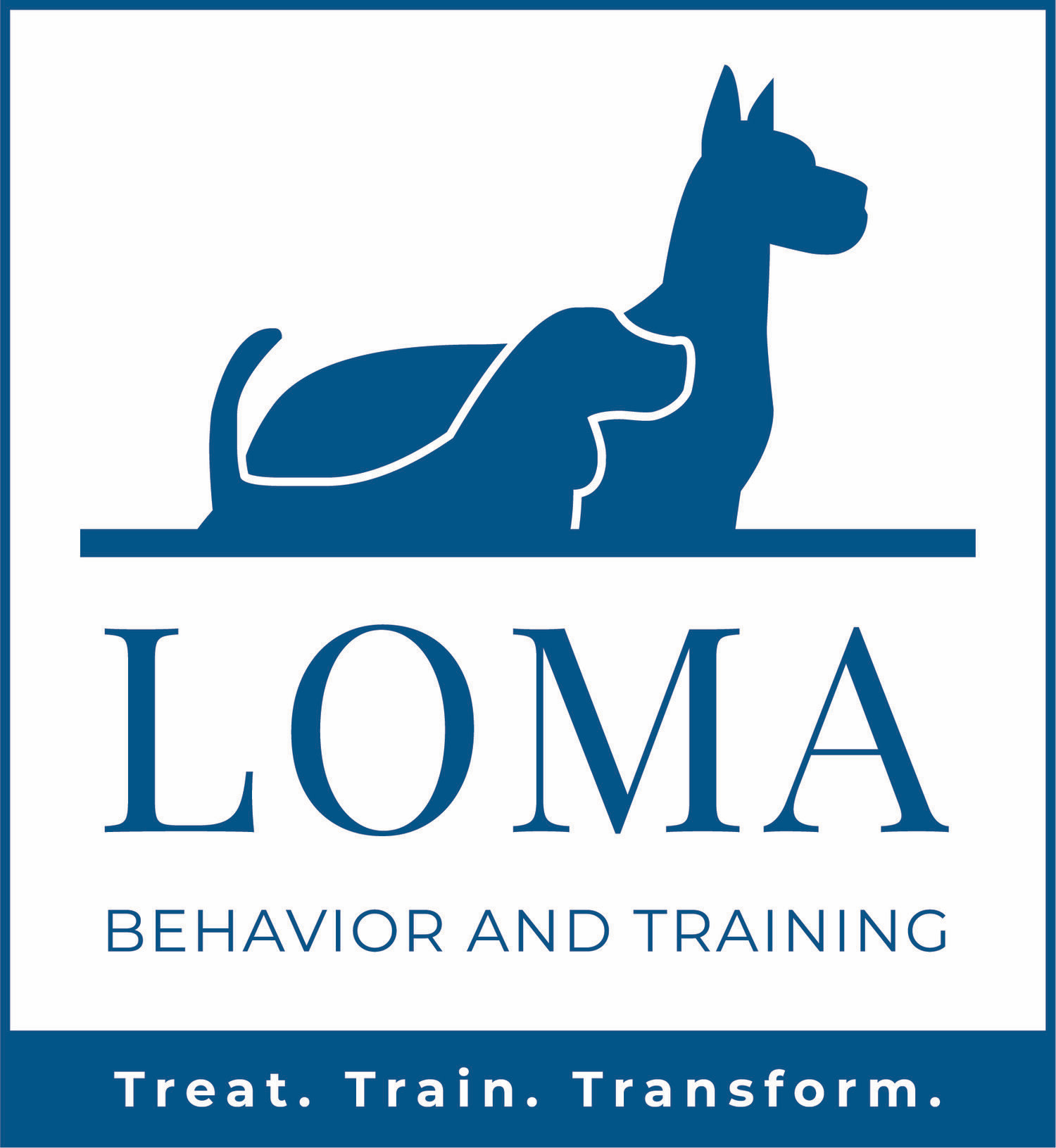
The Right Start To Training
We help you make sense of all the confusing dog training information.
I think I need a trainer, how do I find one?
How do I know if I need a behaviorist?
Do I need to be the “pack leader” to help my dog?
Your training journey begins when you choose a behavior professional. Unfortunately, you can be in for a rocky start because the dog training profession is not regulated. What does this mean exactly? There are no licensing, education or experience requirements to work as a dog trainer or behavior professional. This makes it important for you to use caution and ask questions to make sure you get someone who will help and not harm your dog. Here are some tips to get you off to the right start with your training.
-
Trainers should understand principles of learning and can teach dogs commands or cues ranging from simple (“sit”, “down”) to complicated (agility). They should not be working with dogs that are fearful, showing aggressive behavior, separation anxiety, etc., unless they have specialized education in those areas. If your dog has these issues, see a behaviorist, behavior consultant or veterinarian. Look at the section, “A Behavior Professional is more than a trainer.”
-
Unfortunately, anyone can call themselves a trainer. They don't have to have any education or license or experience to call themselves a trainer. It means that someone doing a quick web search will find many companies that claim to do dog training, without any credentials. So start by looking for a trainer who is certified by an independent organization. This way you avoid someone who is not helpful or could even potentially hurt your dog. There are only a couple of organizations that do this. See the list below. If a trainer does not belong to one of these organizations, then you have little recourse if something goes wrong.
-
The short answer: it doesn't. If your dog is showing fearful or aggressive behavior, obedience will not likely solve the problem. There are many uneducated trainers who claim that having an obedient dog will stop the dog from being aggressive. That statement flatly has no evidence. Aggressive behavior typically stems from fearful states so teaching a dog obedience never resolves the dog's fearfulness. Without a full understanding of the emotional state that influences your dog's behavior, obedience is not effective. LOMA Behavior and Training gets many clients whose dogs learned obedience from another trainer but the dogs still have their original behavior concern because it was never addressed using obedience. When a behavior professional creates a behavior modification plan, your dog will often learn obedience cues, but they will be part of a complete program of training designed to change your dog's emotional state.
-
The surprising answer is "no." If you see advertising for dog training that guarantees results or will result in a 100% obedient or 100% distraction-proof dog, the individual does not belong to any professional organizations that monitor the professional's behavior. Professionals who belong to the major pet training organizations are not ethically allowed to guarantee their results. We are not allowed to do this because dogs are living creatures with emotions, personalities, and experiences outside of our control that can influence training outcomes. It would be the equivalent of a psychologist saying they could guarantee you would never feel anger or would never shout in frustration after therapeutic treatment. Instead we can guarantee our customer service experience and our use of appropriate training methods with your dog.
-
Some individuals use the term "balanced" to describe their methods. This term means they use both positive reinforcement (rewards or play) and punishment (e-collars, prong collars, leash pops, etc.). This type of "balance" has clearly been proven to be harmful in training. It sets up a confusing standard for your dog. See the question “Do Methods Matter?” for more information.
-
Trainers without proper knowledge often use terms such as dominance, alpha dog, pack leadership, leadership training, submissive state, or "be the boss," to describe their training goals. These terms used in dog training have long been disproven. In fact, all the major credible dog training organizations have a statement on this concept (AVSAB, APDT, IAABC). So a trainer using these terms is demonstrating that they are not keeping up to date with evidence-based research in pet dog training strategies.
-
There is now overwhelming evidence that some methods can cause harm to your dog, diminish their emotional health, and undermine the trust your dog puts in you. Yet, many individuals working in this industry continue to use outdated methods, showing they are not staying up to date on the latest evidence-based research. A trainer will ideally not use any tool or method that deliberately causes your dog discomfort. The evidence is so strong the American Veterinary Society of Animal Behavior recently revised its statement on Humane Dog Training noting “Evidence supports the use of reward based methods for all canine training…There is no evidence that aversive training is necessary for dog training or behavior modification.”
-
The short answer “yes,” Some equipment is designed to punish. Electronic collars (e-collars) are one of those tools. This type of collar is also often called other names, such as shock collar, professional training collar, stim collar, "humane" punishment collar, no-shock correction collar. Even if the punishment is designed to be mild, if it causes your dog to feel uncomfortable it can cause additional behavior problems that can be difficult to solve down the road. There is well documented research showing the negative effects of these collars so if you want to know more check out Fear Free Happy Homes article on The Dangers of "Training" Collars.
-
The term “certification” is also not regulated by any governing agency. The term does not guarantee the individual has any specific education or experience. Currently, the Certification Council of Professional Dog Trainers is the only national organization that certifies dog trainers and behavior consultants using a comprehensive, psychometrically sound examination that measures the individual’s knowledge of animal learning. Even individuals with military working dog credentials should also belong to the professional organizations that safeguard the public such as those listed below in Organizations That Matter. Certifications from these organizations ensure professionals can work with pet dogs and they are being held to the ethical standards of the pet training industry. If the person acts unethically or engages in inappropriate training methods, these organizations can revoke the certification.
Trainer Danger: Quick video on How to Find A Trainer that Won’t Harm Your Dog
What Else Should I Know?
A Behavior Professional is more than a trainer
When your dog is fearful, growling, or biting you need more than a trainer. Even dogs that seem agitated, can't settle down, chew up everything may have an underlying emotional issue that is contributing to their behavior. You need a professional with specialized knowledge about these issues so you can get your dog the right help. Just going by what someone calls themselves won't help you. Here’s the kicker: just like anyone can call themselves a trainer, anyone can call themselves a dog behaviorist, behavior specialist, or dog behavior professional. But there are professionals who can help. Here’s a list..
Veterinary Behaviorist – Is a licensed veterinarian who has completed advanced education in veterinary behavior. They can prescribe medication and create behavior modification plans. LOMA Behavior and Training works with several veterinary behaviorists in San Antonio and other major cities in Texas.
Veterinarian – can prescribe medications for behavioral health. LOMA Behavior and Training works with several local veterinarians in San Antonio to help dogs with behavior issues.
Certified Applied Animal Behaviorist (CAAB) – has a master’s or doctoral degree in animal behavior related fields. There are currently none in the San Antonio area.
Behaviorist - typically has a Masters or Doctorate level education in animal behavior or psychology, although the term is used by many who do not. They design behavior modification plans and often work as part of a team, along with your veterinarian or a veterinary behaviorist. LOMA Behavior and Training has 2 professionals with Ph.D.'s in animal behavior and psychology on staff.
Behavior Consultant - can refer to behaviorists and trainers who have advanced education in behavior issues. They can design behavior modification and training plans and often work with a behaviorist, veterinarian, or veterinary behaviorist.
Veterinary Behavior Technician - Is a certified veterinary technician with specialist education in veterinary behavior medicine. They often work as part of a veterinary behavior team. There are none in the San Antonio area.
The Organizations That Matter
These are not all the available organizations where you can find help, but they are the best places to start.
Academy of Veterinary Behavior Technicians - veterinary technicians who are specialists in animal behavior.
American College of Veterinary Behaviorists - veterinarians who specialize in behavioral health.
American Veterinary Society of Animal Behavior - veterinarians and doctoral level animal behaviorists.
Certified Applied Animal Behaviorists - animal behaviorists who have a masters or doctorate level education.
Certification Council of Professional Dog Trainers - dog trainers and dog behavior consultants.
Fear Free - veterinarians, trainers and other professionals certified in knowledge to enhance pet emotional wellbeing.
International Association of Animal Behavior Consultants - behavior consultants in dog, cat, horse and parrot behavior.
Great Free Training Resources
There are many great, credible, resources for free training advice. These are some of our team favorites.
Fear Free Happy Homes is a free resource for any pet owner. Their mission is to prevent and alleviate fear, anxiety, and stress in pets by inspiring and educating the people who care for them.
The Association of Professional Dog Trainers has some great articles on common behavior problems like barking, destruction and crate training.
FearfulDogs has wonderful resources for pet owners if you have a dog showing fear, reactivity, anxiety or aggression.
C.A.R.E. for Reactive Dogs provides a comprehensive training plan that anyone can follow if you have a dog that is leash reactive, and barks and lunges at other dogs or animals.
The Muzzle Up Project provides support for any owners whose dogs need to wear a muzzle for any reason. They include complete instructions for how to get a dog comfortable wearing a muzzle.
Service Dog Frequently Asked Questions
We get many calls from clients seeking training for a service dog. We can help in some situations but this is a field that is plagued by scams and trainers who misrepresent what service dogs do and the training required. Here are some helpful articles to help you determine if your dog is a good candidate for this work and tips to avoid scams.
Helping Clients Choose The Right Service Dog Candidate - by Veronica Sanches, M.Ed., CABC, CPDT-KA and owner of Cooperative Paws Service Dog Education

